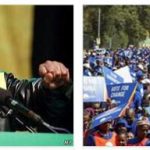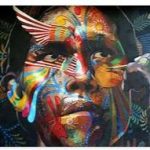The 20th century ended in the South Africa with the handover between Nelson Mandela, the charismatic president of the end of apartheid and the advent of democracy, and Thabo Mbeki, an experienced and pragmatic politician, who took office on June 16, 1999. The retirement of Mandela, with his explicit connotation of physiological alternation at the head of the state, confirmed the extraordinary democratic normality of the South Africa, which had become, in a relatively short period of time, a reference country for all of sub-Saharan Africa and an element of stability. and balance at the regional level. The SR’s authority was confirmed by its appointment in 2006 as a non-permanent member of the United Nations Security Council. This success did not diminish the difficulties the country had to face: the need to build an inter-ethnic and unitary national identity; the persistent racial inequalities, which were overlapping, with the formation of a black ruling class, also growing divergences in the same living conditions of the black population; the spread of the AIDS epidemic; high levels of unemployment; poverty; the overwhelming hegemony, in the national government and in many of the provincial ones, of the African national congress (ANC), a party-state which, while on the one hand it had proved capable of representing the majority of the population, on the other exercised a such a monopoly of power as to represent a possible limit to the democratic model and to constantly expose it to the risk of corruption and authoritarian involution.
The new government that emerged from the 1999 elections, led by Mbeki, it set itself as priority objectives, in continuity with the previous administrations, the full equality of rights and a more equitable distribution of wealth, within a market economy. From an institutional point of view, the country had built a consolidated system of rules, also favored by the considerable vivacity and articulation of civil society, but on the economic and social level the situation was much more problematic: at the beginning of the century the rate of economic growth it was still modest, mainly due to the heavy legacy of the past regime, which had brought the country to the brink of bankruptcy. This complicated the government’s programs, which envisaged by 2015 agreed forms of expropriation of 30% of the land of white farmers to distribute it among the poorest farmers, and a greater presence of exponents of non-white communities in the executive roles of public administration and companies. The land redistribution programs encountered many difficulties of various kinds which generated very strong social tensions, which in 2001 also resulted in land occupations. For South Africa government and politics, please check a2zgov.com.
The government’s policy of moderate liberalism was confirmed by the continuation of the privatization plan of many state-owned companies, which was however matched by greater public control over natural resources. The opening to the entire population of health facilities, essentially designed to meet the needs of the white minority, had also subjected the system to enormous strain, extending waiting times for services and generating widespread dissatisfaction with the quality of care, burdened by the weight of the AIDS epidemic. In fact, the disease represented a huge social problem whose future impact on the economy was difficult to calculate, because it was mainly the working-age population that was affected (in 2005 about 19% of those between 15 and 49 years of age, according to United Nations estimates). Mbeki underestimated the complexity of the problem, opposing the free distribution of antiviral drugs to the population affected by the disease. In February 2002, this distribution was started in the province of KwaZulu-Natal, but against the will of the government and on the personal initiative of the Minister of the Interior, Mangosuthu Buthelezi, leader of the Inkhata freedom party (IFP, political expression of the Zulu minority and hegemonic force in that province); in July the legitimacy of the initiative, which had been contested by the government before the High Court of Justice, was confirmed by the Constitutional Court. Mbeki then began to change his orientation, albeit very slowly, and in December 2003, after an agreement had been reached with two European companies for the production of antiviral drugs in South Africa, he undertook to guarantee their free administration to at least 53,000 people by March 2004. It was still a decidedly limited measure, however partially applied, which nevertheless seemed to initiate a change of line in government guidelines. An important role in bringing about this change was played by the commitment of many grassroots organizations, but also from the battle personally waged by Mandela against a group of 39 large pharmaceutical companies that in the spring of 2001 were forced to withdraw from the trial they had filed against South Africa, accused of producing antiviral drugs without paying the relative patents, and to admit the the right of poor countries to have low-cost effective medicines for the treatment of the disease. The legislative elections took place in April 2004: the ANC increased its support, obtaining 69.7% of the votes, followed by the Democratic alliance, of liberal orientation, with 12.4%, followed by other smaller parties. On April 27 Mbeki was sworn in for his second term with a program focused on land reform and fighting inequality. But the economic policy choices in the first two years of the new government did not appear so incisive and determined. Although GDP growth was more sensitive starting in 2004, the high unemployment rate among the black population and the slowness in the allocation of land were such as to generate strong tensions, to crack the traditional alliance between party and trade union and to to bring out strong dissensions within the same party. In the spring of 2005, a dramatic confrontation broke out between Mbeki and Vice President Jacob Zuma.
Beyond the different political positions, the first more moderate and the second more radical, the situation was precipitated by the accusations of corruption related to arms trafficking made by the judiciary in Zuma and the conviction of a close collaborator. Mbeki dismissed Zuma from office in June, but the latter did not lose the broad consensus he enjoyed within the ANC. In December 2007, despite not having yet clarified his judicial position (he will later be acquitted), Zuma was elected president of the party, after a heated confrontation with Mbeki, just as he was involved in a new investigation for corruption (later acquitted). This story had an unexpected ending in September 2008 when Mbeki, accused of having exerted pressure on the judiciary to induce it to indict his rival, was forced to leave the presidency. His resignations were followed by those of numerous ministers, while parliament elected Kgalema Motlanthe, the ANC vice president, in his place. In November a new sensational political break marked the end of an era and the crisis of the party symbol of the fight against apartheid: the ANC suffered a split by a large group of militants who gave birth to the Congress of the people (COPE). Mbeki’s position was also weakened by his evident difficulty in dealing with dramatic social problems, while his image was clouded by the inability to intervene promptly in the emergency situation created in May 2008, when for many days they were unleashed. violence against immigrants, mostly Zimbabweans and Mozambicans; a war between the poor that had generated a real humanitarian emergency and had clouded that idea of openness, of tolerance and integration that seemed to want to be the hallmark of the new South Africa.
The legislative elections took place in April 2009, which once again saw the ANC win with 65.9%, followed by the Democratic alliance with 16.6 and the Congress of the people with 7.6. In May Zuma was elected by the Parliament to the presidency of the Republic. His policy was in fact in substantial continuity with his predecessor, but his government showed early signs of instability and in June 2012 it underwent its third reshuffle, while the ANC was plagued by internal conflicts, which, among other things, led to the five-year suspension of controversial party youth organization leader Julius Malema in 2011. Despite the great proof of efficiency shown in hosting the Soccer World Cup in June-July 2010, the country was increasingly showing signs of a difficult economic situation, also due to the world crisis, and of a profound social unease it was experiencing. expression in demonstrations and strikes, sometimes with dramatic results, such as that of August 2012, in which the police opened fire, killing 34 miners. On the international level, during the two Mbeki presidencies and the first years of the Zuma presidency, the South Africa saw its prestige increased thanks to a very active diplomacy in the African continent, and through mediation in some of the most complex conflicts (Democratic Republic of Congo, Ivory Coast), and through the commitment to promote new organizations, African Union.




